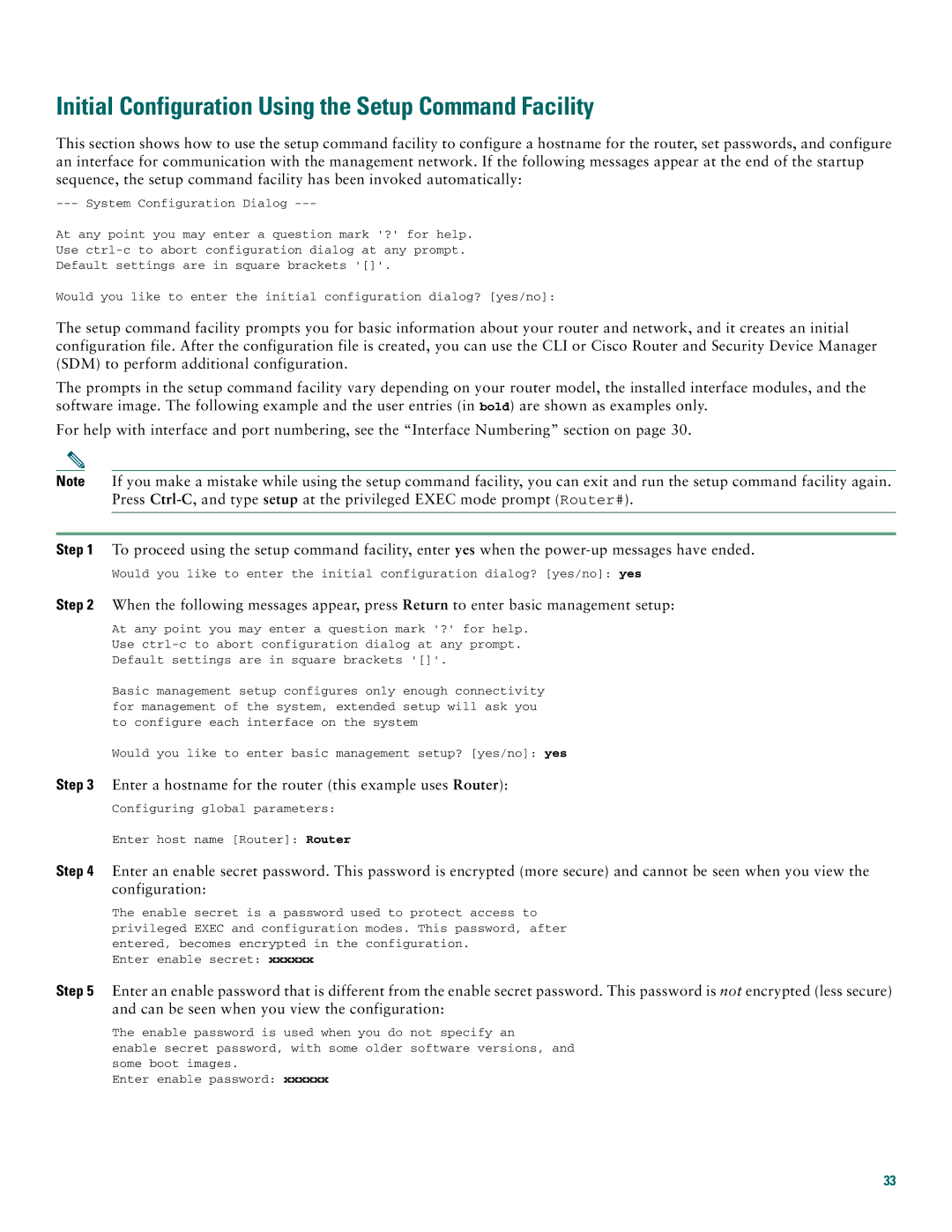
Initial Configuration Using the Setup Command Facility
This section shows how to use the setup command facility to configure a hostname for the router, set passwords, and configure an interface for communication with the management network. If the following messages appear at the end of the startup sequence, the setup command facility has been invoked automatically:
At any point you may enter a question mark '?' for help.
Use
Default settings are in square brackets '[]'.
Would you like to enter the initial configuration dialog? [yes/no]:
The setup command facility prompts you for basic information about your router and network, and it creates an initial configuration file. After the configuration file is created, you can use the CLI or Cisco Router and Security Device Manager (SDM) to perform additional configuration.
The prompts in the setup command facility vary depending on your router model, the installed interface modules, and the software image. The following example and the user entries (in bold) are shown as examples only.
For help with interface and port numbering, see the “Interface Numbering” section on page 30.
Note If you make a mistake while using the setup command facility, you can exit and run the setup command facility again. Press
Step 1 To proceed using the setup command facility, enter yes when the
Would you like to enter the initial configuration dialog? [yes/no]: yes
Step 2 When the following messages appear, press Return to enter basic management setup:
At any point you may enter a question mark '?' for help.
Use
Default settings are in square brackets '[]'.
Basic management setup configures only enough connectivity for management of the system, extended setup will ask you to configure each interface on the system
Would you like to enter basic management setup? [yes/no]: yes
Step 3 Enter a hostname for the router (this example uses Router):
Configuring global parameters:
Enter host name [Router]: Router
Step 4 Enter an enable secret password. This password is encrypted (more secure) and cannot be seen when you view the configuration:
The enable secret is a password used to protect access to privileged EXEC and configuration modes. This password, after entered, becomes encrypted in the configuration.
Enter enable secret: xxxxxx
Step 5 Enter an enable password that is different from the enable secret password. This password is not encrypted (less secure) and can be seen when you view the configuration:
The enable password is used when you do not specify an
enable secret password, with some older software versions, and some boot images.
Enter enable password: xxxxxx
33
